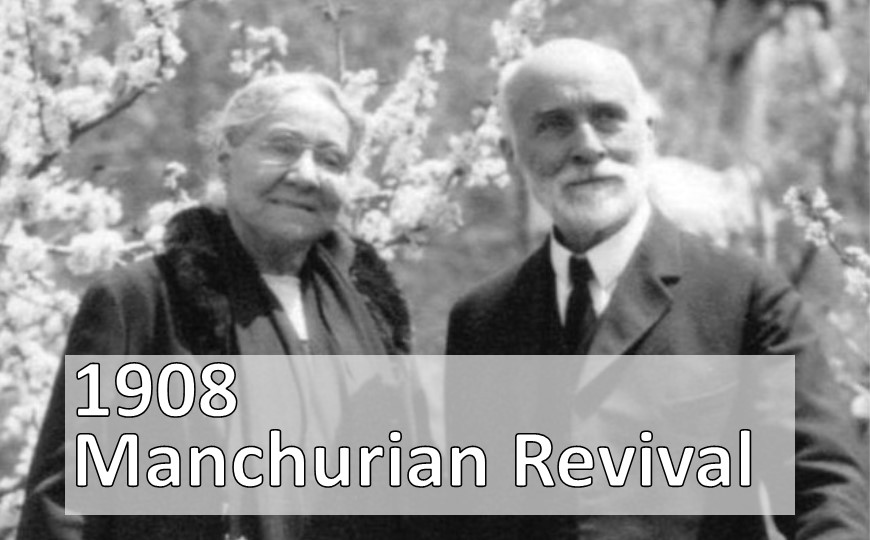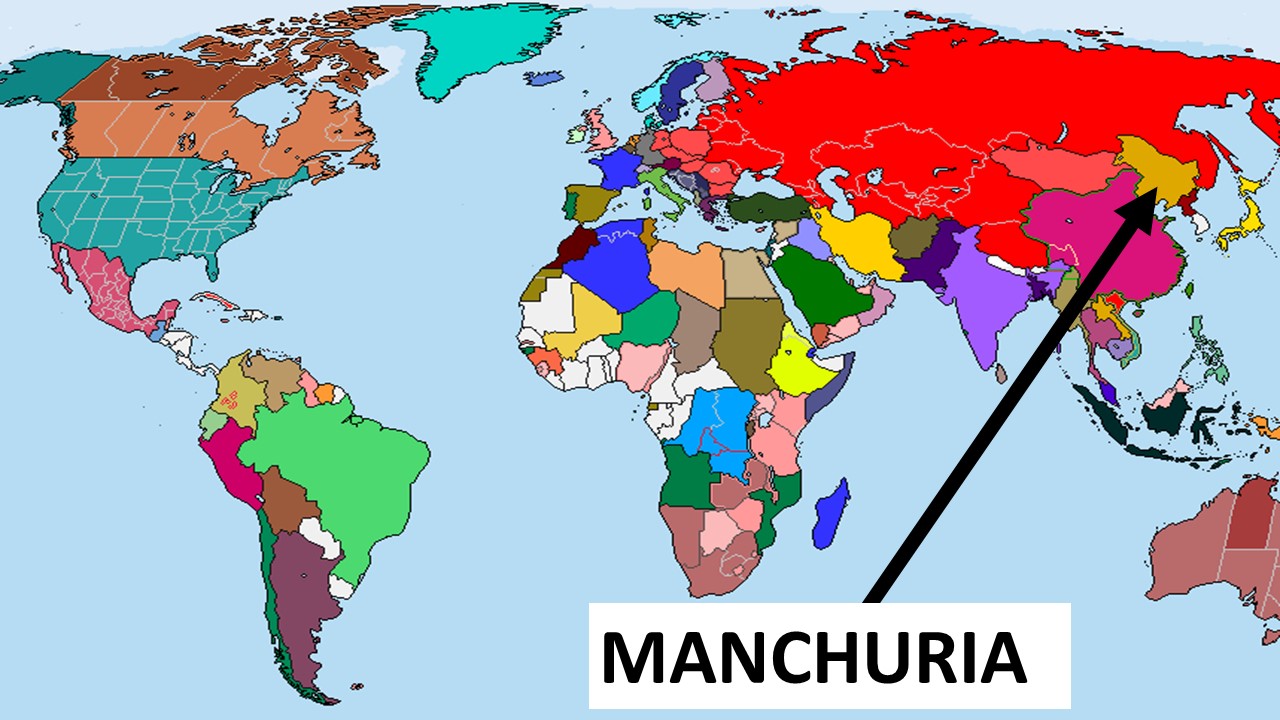
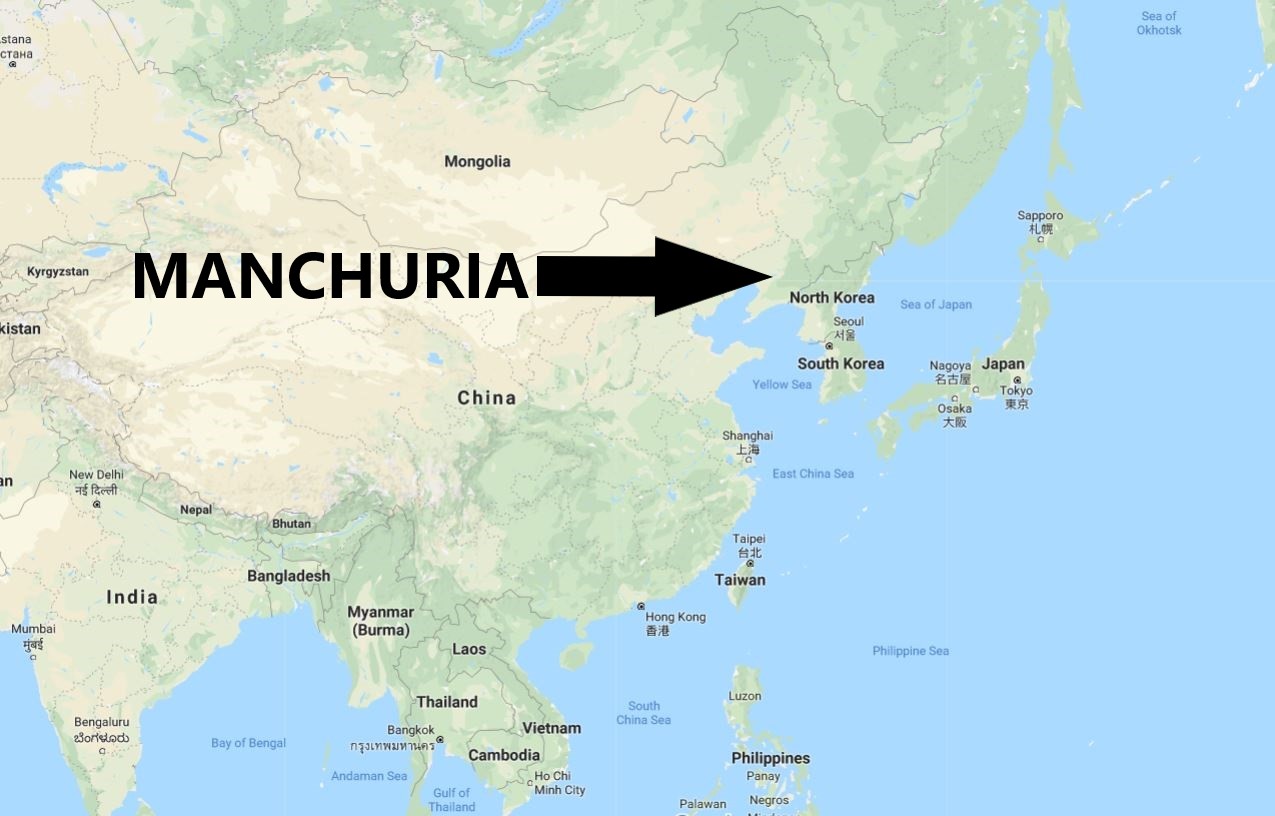
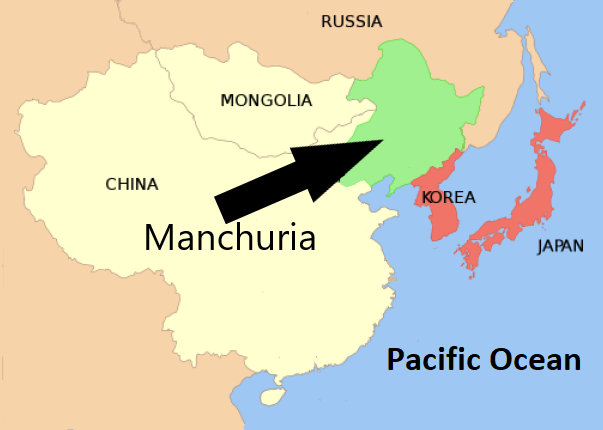
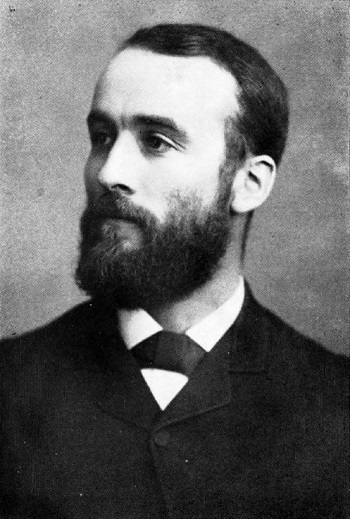
Jonathan Goforth – 1887
Introduction
Jonathan Goforth (1859-1936), a Canadian Presbyterian Missionary to China, arrived to pioneer a mission in the Honan Province (now Henan) in March of 1888. Having lost 5 of their 11 children to sickness, and after surviving an attack with a sword during the Boxer Rebellion (1899-1901), Goforth went on to become the foremost missionary revivalist in early 20th century China. Goforth and his wife, Rosalind, served in China 46 years.
Extraordinary Prayer
As Jonathan and Rosalind Goforth made plans to enter the Honan Province, they were encouraged, and advised, by the founder of the China Inland Mission (today OMF), Hudson Taylor, with the following words:
We understand North Honan is to be your field; we, as a mission, have tried for ten years to enter that province from the south, and have only just succeeded. It is one of the most anti-foreign provinces in China . . . Brother, if you would enter that province, you must go forward on your knees.
From 1900 – 1905 a significant prayer movement had developed. Many Chinese Christians (32,000) involved in that prayer movement lost their lives during the Boxer Rebellion, along with 188 foreign missionaries and their children. During the years of 1906-1907, the prayers and blood of the saints began to produce fruit, as many Chinese began responding to the Gospel.
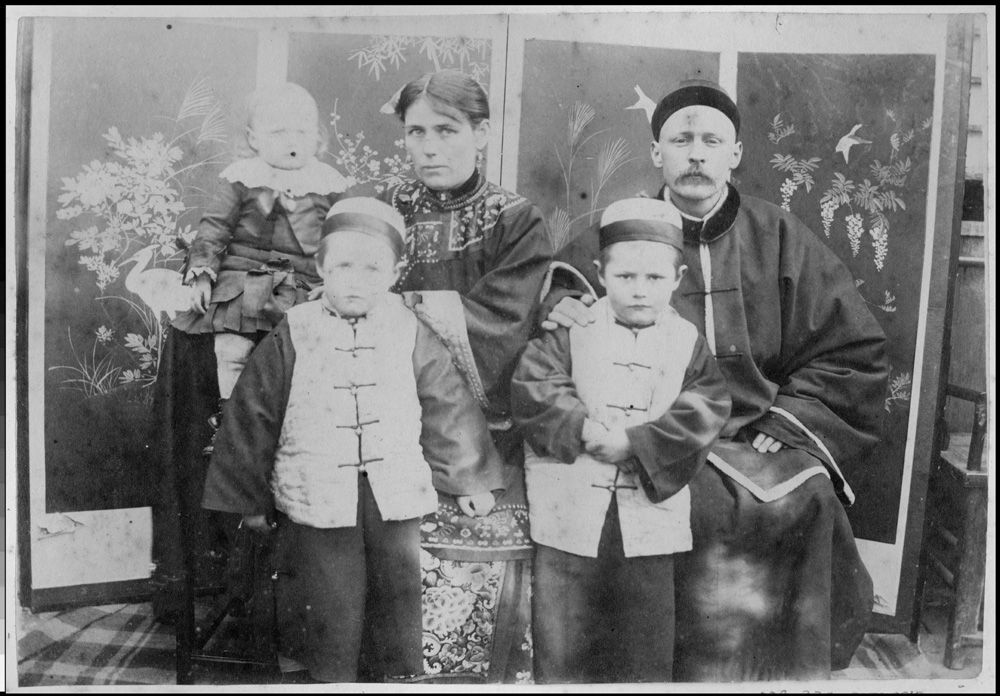
George and Catherine Farthing, Baptist missionaries who worked in the Shansi Province. This family was beheaded in Taiyuan, Shanxi, China by the Boxers on July 9, 1900. Children of the Farthings were: Fredrick, Arthur, Ruth, Elizabeth, and Guy.
Prayer was the Foundation to the 1908 Revival
Jonathan Goforth had been greatly inspired by reading of the 1904-1905 Welsh Revival, and having personally witnessed the 1907 Korean Revival, as well as being deeply challenged by the prayer life of the Koreans, he began praying for a similar move in China.
Upon leaving Korea, and on his way back to the Honan Province in China in the autumn of 1907, Goforth stopped in Mukden (now Shenyang in the Liaoning Province), to share with a group of missionaries what he witnessed in Korea. Those same missionaries asked Goforth to return the following February to conduct a week of special meetings.
What Happened
Upon his arrival back in Mukden on February 15, 1908 to conduct two special meetings per day, he was met with opposition – from those who were hosting him. He also discovered that organized prayer meetings leading up to the services had not been conducted, like what he had requested. Being greatly distressed after the first service, Goforth prayed that evening, asking God,
What is the use of my coming here? These people are not seeking after Thee. They have no desire for blessing. What can I do?
Goforth then said he heard a voice speak right back to him,
Is it your work or Mine? Can I not do a sovereign work?
Then Jeremiah 33:3 came flooding into his mind:
Call to Me and I will answer you, and show you great and mighty things, which you do not know.
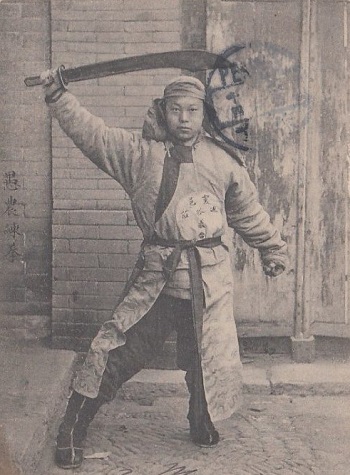
Boxer Fighter
The next morning, prior to the scheduled morning service, one of the Chinese elders met with Goforth privately and told him that during the Boxer Rebellion, when all the financial books had been destroyed in the rioting and fires, and him being the treasurer, who also had church finances on hand that could not be traced, he kept some for himself. He told Goforth that he was tormented with conviction following the sermon from the previous night, and that the only way he could find relief would be by confessing his sin before the congregation.
Following Goforth’s sermon that morning, the elder made his confession, and afterwards, many were moved to tears and deep conviction spread among those assembled. This level of conviction resulted in public confessions lasting four days.
With 800-900 people being present, one elder confessed to adultery and immediately resigned from his position. Immediately following that elder, all the elders and deacons did the same, after confessing their own sins. They said that because of their sinfulness, they were disqualified from the eldership. The pastor also stood, confessed his unfitness for the office he was filling, and subsequently resigned.
With the entire congregation undergoing the same level of conviction, they immediately forgave the elders, deacons and pastor, and reinstated them to their positions of leadership.
The revival then began to spread to the missionaries, even the ones who had previously been opposed to and were indifferent to Goforth’s arrival and the special services he was conducting.
The confessions and repentance led to renewed prayer and evangelistic efforts, and by the end of the year hundreds of backsliders and others had joined the church in Mukden.
The times of prayer during the revival was extremely intense and clearly driven by the Holy Spirit, as illustrated in this account:
The spirit of prayer has been wonderfully manifest. Sometimes half a dozen would start at once, and on one occasion the entire congregation of seven or eight hundred people were all praying together. But there was not the slightest feeling of discord. One felt they were all of one heart and one mind.
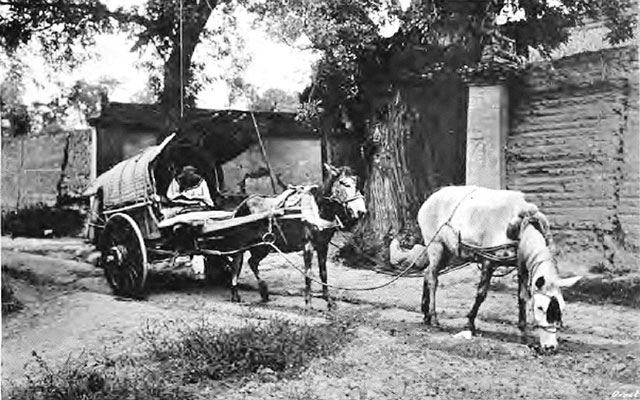
Carts used by missionaries during their travels
The Mukden Revival Continued
Even though Goforth had to leave Mukden on Saturday, February 22, 1908, to hold services at other locations, there was no diminishing of the revival at Mukden.
Surrounding Mukden were over twenty “out-stations,” which were like cell-groups or small churches. It was to these that Chinese evangelists were sent to carry the revival fires into the countryside, and they experienced the same dramatic results that occurred at the church in Mukden, with a great harvest of souls taking place.
Typical Pattern in Goforth’s Meetings
1. Every meeting would commence with one hour of prayer, and there were always two meetings conducted per day, morning and evening, with each lasting three hours.
2. Following his preaching there would be tremendous conviction of sin experienced by those assembled.
3. Goforth would then open the service for people to lead in individual prayers, and his instructions for how to pray always sounded like this:
Please let’s not have any of your ordinary kind of praying. If there are any prayers which you’ve got off by heart and which you’ve used for years, just lay them aside. We haven’t any time for them. But if the Spirit of God so moves you that you feel you simply must give utterance to what is in your heart, then do not hesitate. We have time for that kind of praying. Now, the meeting is open for prayer.
4. Though Goforth never asked people to confess their sins publicly, that was the common practice–a very difficult thing for the Chinese, who perceived public humiliation (shame of face) as being the worst thing that could happen to a person.
5. Every imaginable sin was confessed during these meetings, sins like,
Idolatry, theft, murder, adultery, gambling, opium smoking, disobedience to parents, hatred, quarreling, lying, cheating, fraud, division, resistance to the Spirit, and in-difference to the salvation of souls.
Hit List Destroyed
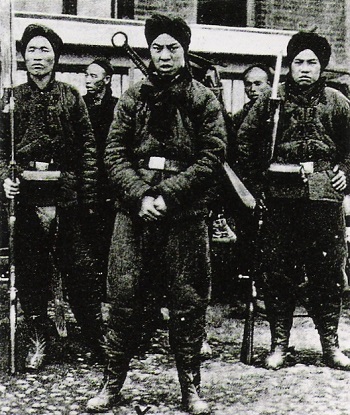
Boxer Soldiers
The church in Shinminfu (now Xinmin) had 54 of their members martyred during the Boxer Rebellion. Those who survived had assembled a list of 250 people in the area who had participated in that massacre. The believers were waiting for the proper time to get revenge on those murderers. During Goforth’s meetings in their church, that list was torn into pieces and trampled under their feet.
It was through conviction of sin and the confession of those sins that caused the revival to produce deep and lasting change.
Common Responses Following Goforth’s Sermons
Immediately, the whole congregation broke into loud lamentation. Scores of men and women rushed forward to the platform, fell on their knees, and made abject confession of sin. It was impossible to gather particulars, the hubbub was so great. There was not a dry face in the building.
On entering the pulpit, I bowed as usual for a few moments in prayer. When I looked up it seemed to me as if every last man, woman and child in that church was in the throes of judgment. Tears were flowing freely, and all manner of sin was being confessed (Newchwang church).
The people knelt for prayer, silent at first, but soon one here and another there began to pray aloud. The voices grew and gathered volume and blended into a great wave of united supplication that swelled till it was almost a roar, and died down again into an undertone of weeping.
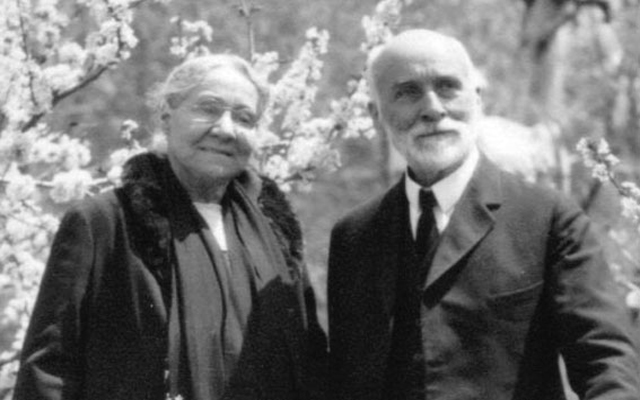
Jonathan & Rosalind Goforth
The very air seemed electric – I speak in all seriousness – and strange thrills coursed up and down one’s body.
Then above the sobbing, in strained, choking tones, a man began to make public confession. Words of mine will fail to describe the awe and terror and pity of these confessions. It was not so much the enormity of the sins disclosed, or the depths of iniquity sounded, that shocked one. . . It was the agony of the penitent, his groans and cries, and voice shaken with sobs; it was the sight of men forced to their feet, and, in spite of their struggles, impelled, as it seemed, to lay bare their hearts that moved one and brought the smarting tears to one’s own eyes.
Never have I experienced anything more heart breaking, more nerve racking than the spectacle of those souls stripped naked before their fellows. So for hour after hour it went on, till the strain was almost more than the onlooker could bear.
Now it was a big, strong farmer groveling on the floor, smiting his head on the bare boards as he wailed unceasingly, ‘Lord! Lord!’ Now a shrinking woman in a voice scarce above a whisper, now a wee laddie from the school, with the tears streaking his piteous grimy little face, as he sobbed out: ‘I cannot love my enemies. Last week I stole a farthing from my teacher. I am always fighting and cursing. I beseech the pastor, elders and deacons to pray for me.
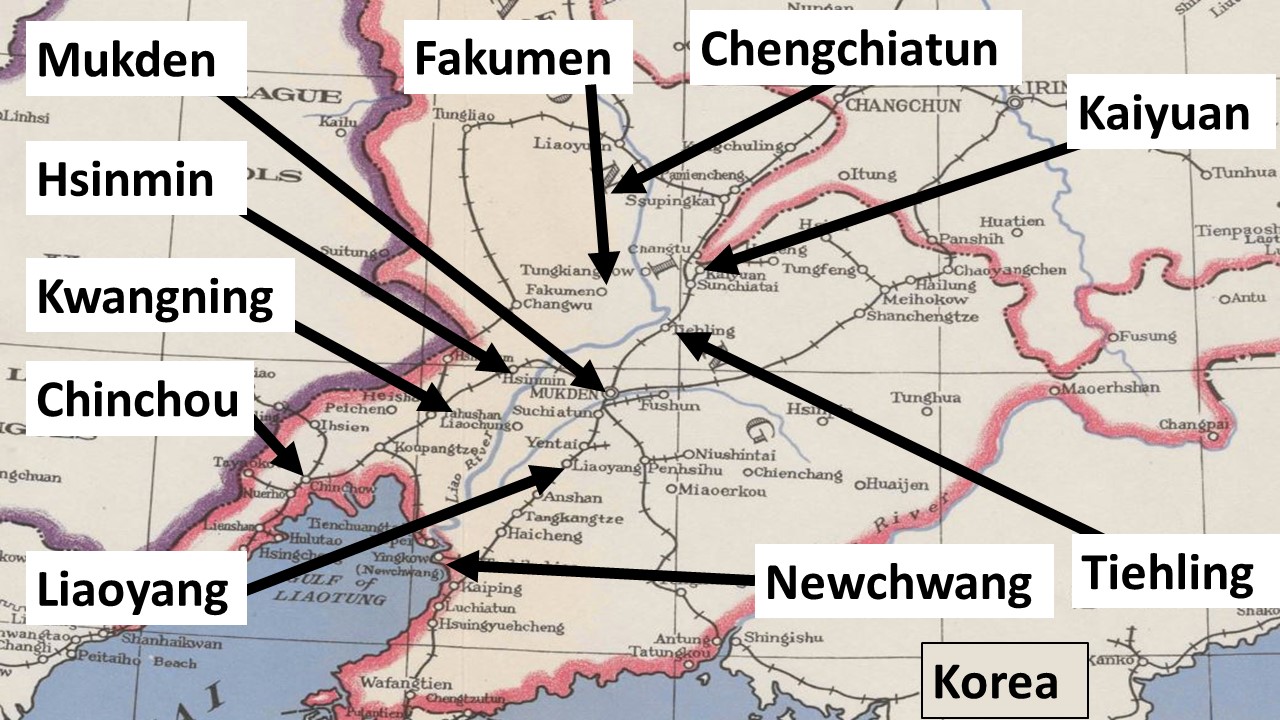
MAP OF SOME OF THE MEETINGS: Jonathan Goforth conducted campaigns in 30 different cities, 10 of which are indicated on this map. After he would conclude his work in a city the revival fires would continue to spread as teams of Chinese evangelists would be sent out from the local churches that experienced the revival into the surrounding countryside, producing a harvest wherever they went.
Results of the Revival
In two years Goforth had completed 30 campaigns in 6 provinces with similar results being seen at each location.
►Old hymns were sung with a new and extraordinary fervor, and new hymns were being written. There were hymns of confession and contrition, hymns of pardon through the precious blood of the Atonement, and hymns expressing human need and heavenly peace.
►Debts were being repaid.
►The Spirit of intercession was poured out on the Church. During and following the revival, people would spend long periods of time in private prayer.
►The national awakening that followed this revival doubled the Protestant population in China to a quarter of a million.
►The Lord used Jonathan Goforth to spark the revival, but the fires of revival were kept blazing by the leadership of Chinese believers.
►The Manchurian Chinese Church was established during the revival, with prominent Chinese denominations beginning to emerge at this time.
Sources
By My Spirit by Jonathan Goforth
Goforth of China by Rosalind Goforth
How I Know God Answers Prayer by Rosalind Goforth
Jonathan Goforth by Wikipedia
Jonathan Goforth Missionary to China by Missionaries of the World
Manchurian Revival by Wikipedia
The 10 Greatest Revivals Ever by Elmer Towns
The Revival in Manchuria by James Webster
When the Spirit’s Fire Swept Korea by Jonathan Goforth
Return to List of Revival Stories
Chet & Phyllis Swearingen:
Office: (260) 920-8248
romans1015@outlook.com
Beautiful Feet
P.O. Box 915
Auburn, IN 46706

